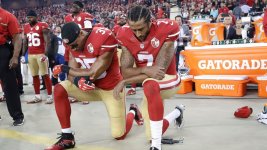The Intertwined Game: How Politics Shapes the World of Sports
Sports, at their core, are about competition, skill, and the pursuit of excellence. Yet, the world of sports is far from a neutral playing field. Politics, in its myriad forms, weaves its way into the fabric of athletic competition, influencing everything from individual careers to international events. This intersection, while sometimes contentious, highlights the profound impact of societal forces on the games we love.
One of the most visible ways politics enters the sports arena is through athlete activism. Throughout history, athletes have used their platforms to advocate for social and political change. Iconic figures like Muhammad Ali, who refused to be drafted into the Vietnam War, and modern-day athletes protesting racial injustice, demonstrate the power of sports as a platform for dissent. While these acts of defiance often invite controversy, they also spark crucial conversations and drive societal progress. Athletes, by taking a stand, remind us that sports are not isolated from the realities of the world.
The selection of host countries for major sporting events also reveals the political undercurrents in sports. The Olympics and FIFA World Cup, for example, are coveted opportunities for nations to showcase themselves on a global stage. However, the bidding processes are often fraught with allegations of corruption and political maneuvering. Hosting these events can be a source of national pride and economic gain, but they can also be used for political gain, allowing countries to enhance their international image and exert soft power. Concerns about human rights, environmental impact, and the displacement of local populations often surface during these events, highlighting the complex political implications of sports on a global scale.
Furthermore, sports often serve as a tool for promoting national identity and political ideologies. National teams and individual athletes become symbols of national pride, and their successes are celebrated as victories for the entire nation. This can lead to the politicization of sports, with governments using athletic achievements to bolster their legitimacy and influence public opinion. In some cases, this can result in the exclusion or marginalization of athletes from certain groups or backgrounds, reflecting underlying political tensions.
The relationship between sports and politics is not always easy. There are those who believe that sports should remain separate from political matters, while others argue that athletes and sports organizations have a responsibility to speak out on social and political issues. Regardless of one's perspective, it's clear that politics is an integral part of the sports world. As long as sports remain a prominent feature of global culture, the interplay between athletic competition and political forces will continue to shape the way we view the world and the values we hold dear.
Sports, at their core, are about competition, skill, and the pursuit of excellence. Yet, the world of sports is far from a neutral playing field. Politics, in its myriad forms, weaves its way into the fabric of athletic competition, influencing everything from individual careers to international events. This intersection, while sometimes contentious, highlights the profound impact of societal forces on the games we love.
One of the most visible ways politics enters the sports arena is through athlete activism. Throughout history, athletes have used their platforms to advocate for social and political change. Iconic figures like Muhammad Ali, who refused to be drafted into the Vietnam War, and modern-day athletes protesting racial injustice, demonstrate the power of sports as a platform for dissent. While these acts of defiance often invite controversy, they also spark crucial conversations and drive societal progress. Athletes, by taking a stand, remind us that sports are not isolated from the realities of the world.
The selection of host countries for major sporting events also reveals the political undercurrents in sports. The Olympics and FIFA World Cup, for example, are coveted opportunities for nations to showcase themselves on a global stage. However, the bidding processes are often fraught with allegations of corruption and political maneuvering. Hosting these events can be a source of national pride and economic gain, but they can also be used for political gain, allowing countries to enhance their international image and exert soft power. Concerns about human rights, environmental impact, and the displacement of local populations often surface during these events, highlighting the complex political implications of sports on a global scale.
Furthermore, sports often serve as a tool for promoting national identity and political ideologies. National teams and individual athletes become symbols of national pride, and their successes are celebrated as victories for the entire nation. This can lead to the politicization of sports, with governments using athletic achievements to bolster their legitimacy and influence public opinion. In some cases, this can result in the exclusion or marginalization of athletes from certain groups or backgrounds, reflecting underlying political tensions.
The relationship between sports and politics is not always easy. There are those who believe that sports should remain separate from political matters, while others argue that athletes and sports organizations have a responsibility to speak out on social and political issues. Regardless of one's perspective, it's clear that politics is an integral part of the sports world. As long as sports remain a prominent feature of global culture, the interplay between athletic competition and political forces will continue to shape the way we view the world and the values we hold dear.


